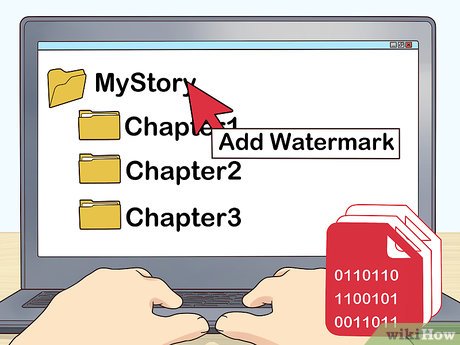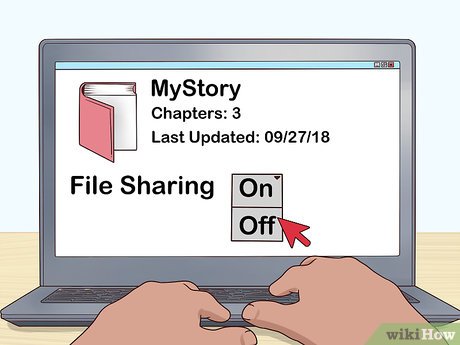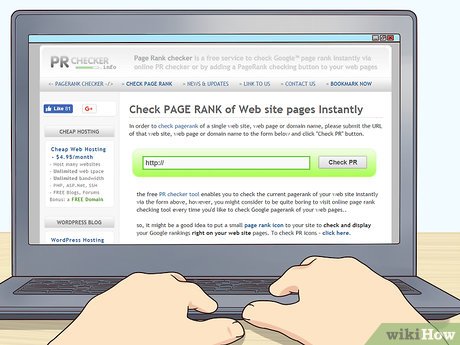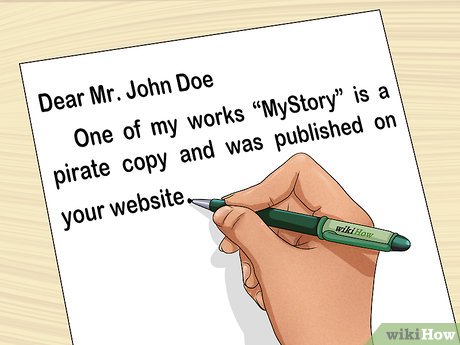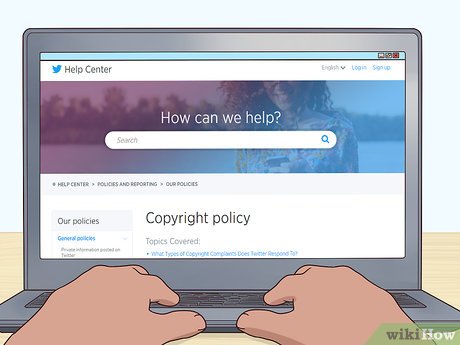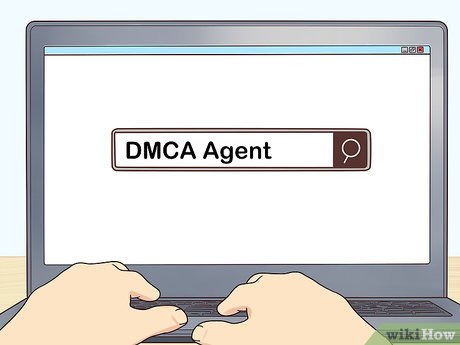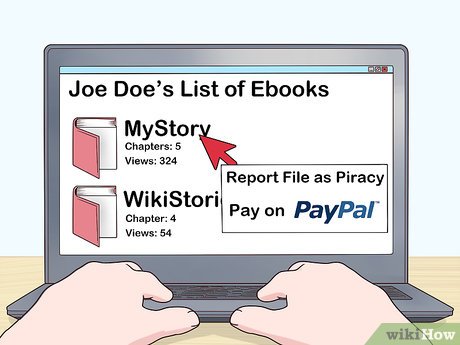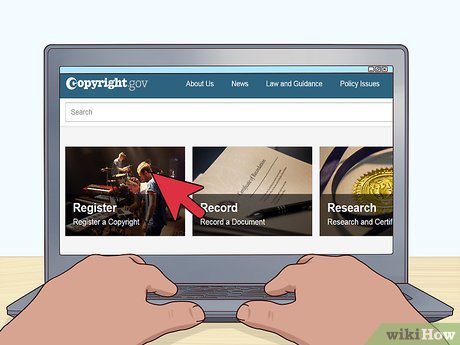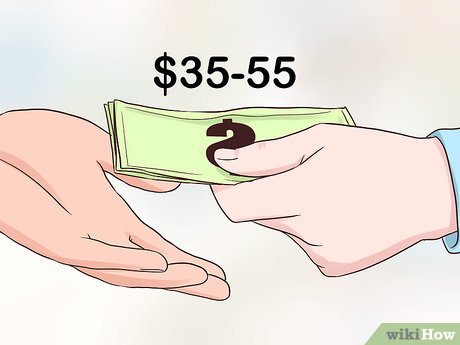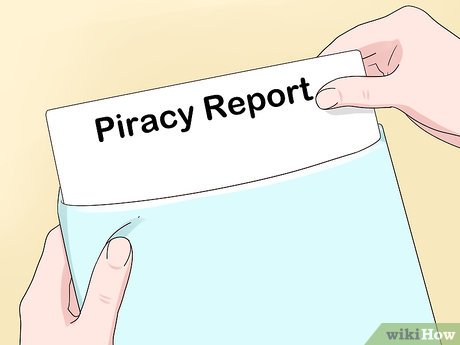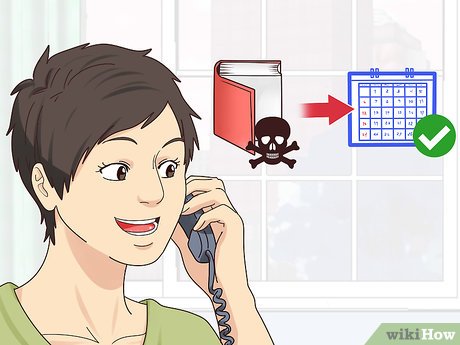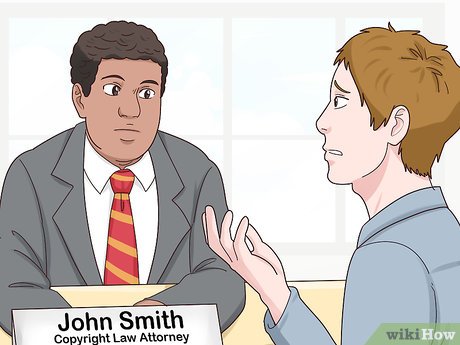How to Combat Book Piracy
Method 1 of 3:
Protecting eBook Files
-
 Encrypt your ebooks. There are encryption programs available for ebooks that will only allow the file to be read by authorized users. This can help prevent transfer of the original file, because the file wouldn't be readable to anyone but the original purchaser.[2]
Encrypt your ebooks. There are encryption programs available for ebooks that will only allow the file to be read by authorized users. This can help prevent transfer of the original file, because the file wouldn't be readable to anyone but the original purchaser.[2]- This method wouldn't protect your book if someone wanted to simply make a screen capture of each page and sell that as a pirated copy.
- There may be some ebook retailers that don't support encryption, which could limit the availability of your book.
-
 Use secure digital files. Whether you're publishing a print book or a digital book, make sure all digital files are encrypted and stored securely so they won't be vulnerable to hackers. You also can lock the files and require a password to access them.[3]
Use secure digital files. Whether you're publishing a print book or a digital book, make sure all digital files are encrypted and stored securely so they won't be vulnerable to hackers. You also can lock the files and require a password to access them.[3]- Give your files a code name that only you would understand. Even if your files are hacked, the would-be pirate will have a hard time figuring out which files are your books. For example, if you've written an ebook titled "Berry Blue," you might name the files on your computer "2B41895e."
-
 Add watermarks to track purchased copies. Major publishers are protecting their ebooks with watermarks, and you may have similar security available as a self-publisher, if you can afford the fees for it.[4]
Add watermarks to track purchased copies. Major publishers are protecting their ebooks with watermarks, and you may have similar security available as a self-publisher, if you can afford the fees for it.[4]- While the watermark technology doesn't prevent anyone from pirating your book, it does allow you to track the copy and potentially identify the pirate. The watermark isn't visible, and is more like a tracking code embedded in the book code. Anti-piracy services scan the internet for the code and report when a pirated copy of your book is found.
-
 Prohibit file sharing. If you sell an ebook through ebook retailers, such as Amazon, you have the option of allowing people who purchase your book to share it with a friend. If you turn this option off, people won't be able to share your book.[5]
Prohibit file sharing. If you sell an ebook through ebook retailers, such as Amazon, you have the option of allowing people who purchase your book to share it with a friend. If you turn this option off, people won't be able to share your book.[5]- Prohibiting file sharing is a double-edged sword because you are losing the opportunity to gain a new reader. Someone who borrows a book from a friend may end up buying one of your other books later on, so if you have numerous titles planned, allow file sharing on your early books.
-
 Monitor the internet. Even if you have a registered copyright in your work, you're still responsible for uncovering pirates and enforcing your copyright by filing a lawsuit. Set search alerts for your name and your book's title to keep informed.[6]
Monitor the internet. Even if you have a registered copyright in your work, you're still responsible for uncovering pirates and enforcing your copyright by filing a lawsuit. Set search alerts for your name and your book's title to keep informed.[6]- Even if you have alerts set, it's still a good idea to do some searching yourself once every few weeks. Search not only for your title but also short titles or common misspellings.
- If you find any possible pirated copies of your book, do not click any links or try to download the file – the file may be corrupt or have a virus. Rather, take down as much information as you can about the website, make screen caps, and bookmark the page.
-
 Market and promote your books. You can combat book piracy simply by putting a lot of effort into marketing and promoting your book. Hold readings and book signings, and participate in reading groups and clubs.[7]
Market and promote your books. You can combat book piracy simply by putting a lot of effort into marketing and promoting your book. Hold readings and book signings, and participate in reading groups and clubs.[7]- Making yourself available and working to develop a more personal relationship with your readers can help build a loyal following. Blogs and social media accounts are good for this.
- Loyal readers who feel they have a personal connection with you will be more likely to buy your books and encourage others to do the same. They also may alert you when they see pirated copies of your book.
-
 Offer incentives to readers. As a self-publisher, you have the power to offer special discounts to readers who legitimately purchase your book. You also can provide incentives through an email newsletter.[8]
Offer incentives to readers. As a self-publisher, you have the power to offer special discounts to readers who legitimately purchase your book. You also can provide incentives through an email newsletter.[8]- Advertising these incentives in each copy of your book can turn people who consume a pirate copies into legitimate readers of your work.
- For example, you might offer a free bonus story if readers sign up for your email list. Even if someone read a pirated copy of your book, they might have liked it enough to sign up for your email list.
Method 2 of 3:
Reporting Pirated Copies
-
 Collect evidence of the piracy. If you find a pirated copy of your work, you'll want to get as much information as possible. Because these pages can be moved or deleted easily, use multiple methods to collect evidence of them.[9]
Collect evidence of the piracy. If you find a pirated copy of your work, you'll want to get as much information as possible. Because these pages can be moved or deleted easily, use multiple methods to collect evidence of them.[9]- Take screen caps, write down direct web addresses, and get web archive copies if possible.
- Avoid clicking on links as you may infect your computer with a virus. The fact that there's a link to what they claim to be your book is sufficient evidence.
-
 Research the site's visibility. Dig into the website where you found possible pirated copies of your book and see what you can find out about how much traffic it gets. If it's a small personal website or blog, you may want to approach it differently than you would if the website was run by a larger corporation.[10]
Research the site's visibility. Dig into the website where you found possible pirated copies of your book and see what you can find out about how much traffic it gets. If it's a small personal website or blog, you may want to approach it differently than you would if the website was run by a larger corporation.[10]- If the site has an "about" page, you may be able to find information there about how many visitors the website gets each day or each month.
- Run a search for the website's main URL at https://www.prchecker.info/check_page_rank.php for Google PageRank, and at http://www.alexa.com/siteinfo for Alexa Rank. These will give you information on the site's traffic and how high up the page would appear on search results. This can give you a good idea of how many people potentially have access to the pirated copy of your work.
-
 Find the owner of the domain. Look up the website on the WHOIS domain registry at https://whois.icann.org/en. It will tell you who has registered that domain. Provided the owner hasn't enabled identity-blocking, it will give you their address, phone number, email address, and IP address.[11]
Find the owner of the domain. Look up the website on the WHOIS domain registry at https://whois.icann.org/en. It will tell you who has registered that domain. Provided the owner hasn't enabled identity-blocking, it will give you their address, phone number, email address, and IP address.[11]- If the domain owner has a security or identity-blocking service enabled, the information you get will be the address and contact information of the domain registrar, not the individual owner. However, you can still use this information to contact the registrar regarding the pirated copies.
-
 Send a cease-and-desist letter. If you were able to find the owner of the domain, write a polite letter informing them of the pirated copies of your book available on their website. Take the attitude of assuming that they were unaware of the piracy, and will be willing to work with you.
Send a cease-and-desist letter. If you were able to find the owner of the domain, write a polite letter informing them of the pirated copies of your book available on their website. Take the attitude of assuming that they were unaware of the piracy, and will be willing to work with you.- In your first communication with the website owner, avoid accusing them of stealing your work, and don't threaten a lawsuit. Simply provide information about the piracy you've found and ask them to work with you to rectify the situation.
- Give the owner a deadline to respond, but remain informal. For example, you might say "I look forward to putting this matter to rest. Please get back to me within the next two weeks and let me know your plans."
- You may get a response back that is less than helpful. They may blatantly refuse or they may ignore your letter. In that case, you may want to talk to an attorney and send a more formal letter.
-
 Notify the site's DMCA agent. U.S. law requires web hosts, such as WordPress and Tumblr, to have a DMCA agent who can be notified regarding pirated content. If the website is hosted by one of these services, search for a link to a copyright page.
Notify the site's DMCA agent. U.S. law requires web hosts, such as WordPress and Tumblr, to have a DMCA agent who can be notified regarding pirated content. If the website is hosted by one of these services, search for a link to a copyright page.- Typically you'll find a form you can fill out to notify the site's DMCA agent. You must provide your name, address, and phone number, along with information about the pirated content.
- The DMCA agent will review your notice and if they agree with you, they'll remove the content themselves. You'll typically hear back from them within a day or two.
-
 Contact the domain registrar and hosting company. If you can find the name of the company that registered the domain or provides hosting services for the website, they also may be obligated to take down pirated content.[12]
Contact the domain registrar and hosting company. If you can find the name of the company that registered the domain or provides hosting services for the website, they also may be obligated to take down pirated content.[12]- Companies located in the United States are required to remove pirated content if they are notified of it. Regardless of whether you were able to send a DMCA notice to the site's DMCA agent, you can send a notice with the same information to the domain registrar and hosting company.
- Some of these companies may have a form on their website that you can fill out and submit. Check their website for the name of their DMCA agent or the method for reporting piracy to them.
-
 File a report with the payment processing company. Some payment processing companies, such as PayPal, will ban or suspend users who receive money for pirated content. If the website you found is taking money for pirated copies of your work, you can potentially take away their ability to make any money off of it while you evaluate your other options.[13]
File a report with the payment processing company. Some payment processing companies, such as PayPal, will ban or suspend users who receive money for pirated content. If the website you found is taking money for pirated copies of your work, you can potentially take away their ability to make any money off of it while you evaluate your other options.[13]- Look on the website for logos of payment processing companies they use. Go to that company's website and look for a legal or copyright link that will give you the information you need to file your report.
-
 Follow up on your reports. At this point, you may have notified several different individuals or companies about the piracy of your book. This should be enough to get the pirated content removed, but you have to stay vigilant.
Follow up on your reports. At this point, you may have notified several different individuals or companies about the piracy of your book. This should be enough to get the pirated content removed, but you have to stay vigilant.- Just because a website or host removes a particular link or page, there's no guarantee that the pirates won't simply repost your content. It also won't stop them from going to another website and uploading the same content there.
- Keep up with your monitoring of the internet generally, and revisit sites you've reported to make sure the pirated content doesn't return.
Method 3 of 3:
Registering Your Copyright
-
 Complete a registration application. If you still aren't able to get rid of pirated copies of your book on the internet, you can sue the pirates for copyright infringement. Before you can file a lawsuit, though, you have to register your copyright with the U.S. Copyright Office.[14]
Complete a registration application. If you still aren't able to get rid of pirated copies of your book on the internet, you can sue the pirates for copyright infringement. Before you can file a lawsuit, though, you have to register your copyright with the U.S. Copyright Office.[14]- You have a copyright in your work from the moment you write it down – no registration required. But if you want to enforce that copyright to combat book piracy, you do need to go through the formal registration process.
- You can find registration applications and instructions on the Copyright Office website at copyright.gov. You don't need an attorney to register a copyright. The application is simple and you can complete it online in a few minutes.
-
 Pay the applicable filing fees. If you're the only author of your book, you can pay a filing fee of $35 provided you complete your application online. The fee is $55 if you wrote the book with someone else.[15]
Pay the applicable filing fees. If you're the only author of your book, you can pay a filing fee of $35 provided you complete your application online. The fee is $55 if you wrote the book with someone else.[15]- When filing online, you can pay using an electronic check or a credit or debit card.
- You also have the option of mailing in a paper application. Processing time will be longer, and you'll have to pay a higher filing fee of $85.
-
 Attach deposit copies. Your application must be accompanied by electronic copies of your work, which will be filed with the Library of Congress. The website has a list of acceptable file types that you can submit.[16]
Attach deposit copies. Your application must be accompanied by electronic copies of your work, which will be filed with the Library of Congress. The website has a list of acceptable file types that you can submit.[16]- If you send in a paper application, you also must send in hard copies of your work.
-
 Request expedited processing. If you already have knowledge that someone has pirated your book and you haven't yet registered your copyright, you might want to have your application expedited. Otherwise it can take as long as eight months to process.[17]
Request expedited processing. If you already have knowledge that someone has pirated your book and you haven't yet registered your copyright, you might want to have your application expedited. Otherwise it can take as long as eight months to process.[17]- Expedited processing is only available in limited circumstances, and you'll have to explain the reasons you believe your situation requires expedited processing. If the Copyright Office agrees to expedite your registration, you must pay an additional $800 fee.
-
 Speak to a copyright law attorney. If you've exhausted all other options, you may want to consider suing the pirates in court. Find an attorney who specializes in filing copyright infringement lawsuits, and get their opinion on your case.
Speak to a copyright law attorney. If you've exhausted all other options, you may want to consider suing the pirates in court. Find an attorney who specializes in filing copyright infringement lawsuits, and get their opinion on your case.- Some attorneys offer free initial consultations, but a good copyright law attorney may charge a small flat rate even for the initial consultation. In addition, attorneys seldom take copyright infringement cases under a contingency fee arrangement, which means you could spend thousands of dollars on legal fees before you even go to trial.
- Federal court proceedings are time-consuming, expensive, and stressful. You should only consider suing pirates for copyright infringement as a last resort, or if they've been selling pirated copies of your work and made a lot of money.
Share by
Jessica Tanner
Update 24 March 2020


